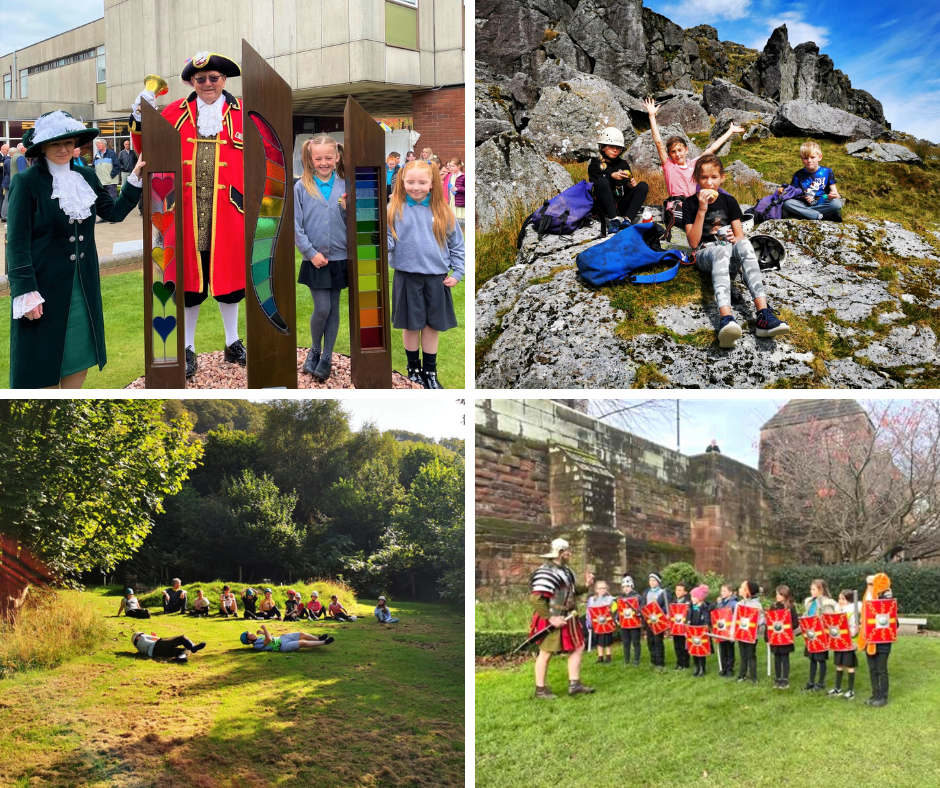Geography at Longlands Primary School
Intent
At Longlands Primary School we believe that Geography helps to provoke and provide answers to questions about the natural and human aspects of the world. Children are encouraged to develop a greater understanding and knowledge of the world, as well as their place in it. The geography curriculum at Longlands enables children to develop knowledge and skills that are transferable to other curriculum areas and are used to promote pupil’s spiritual, moral, social and cultural development. Geography is by nature an investigative subject which develops an understanding of concepts, knowledge and skills. We seek to inspire in children a curiosity and fascination about the world and its people which will remain with them for the rest of their lives; to promote the children’s interest and understanding of diverse places, people, resources and natural and human environments, together with a deep understanding of the Earth’s key physical and human processes. The curriculum is designed to develop knowledge and skills that are progressive, as well as transferable, throughout their time at Longlands Primary and also to their further education and beyond.
Implementation
Implementation of Rising Stars Geography
Rising Stars Geography is designed to be delivered by non-specialists, with core geographical knowledge identified and explained throughout. A breadth of teaching approaches appropriate to the content and desired learning outcomes are used to engage pupils and enable them to not just acquire knowledge but to apply it in meaningful contexts. Appropriate discussion is recommended as a means of checking pupils’ geographical learning systematically, identifying misconceptions and providing immediate feedback. Questions and tasks to stretch and challenge the most able pupils are incorporated where appropriate.
Revisiting ideas and concepts in different, more challenging, contexts later units, using varied assessments and the inclusion of quizzes are all designed to help pupils remember content and integrate new knowledge into their evolving conceptual framework. Quality resources and materials are provided online to support the geography curriculum and are sequenced towards the accumulation of skills, knowledge and understanding for pupils’ futures.
We use the Rising Stars Geography scheme as a basis for teaching National Curriculum geography as it is progressive, well-sequenced and engaging. It is led by enquiry, in order to develop both children’s skills and knowledge and enriched by experiences to maximise learning for all children.
Click here for the Geography Long Term Plan.
Three geography topics will be delivered each year, on a carefully designed, progressive 2 year rolling program. Teachers are given the flexibility to teach lessons weekly, or as a ‘blocked’ approach, dependent on the needs of the class.
So that every child is given the best possible opportunity of achieving the highest standards in geography the way in which we teach this subject includes:
- Using high quality resources and enquiry-based learning.
- Building on prior knowledge as well as revisiting previously taught skills.
- Providing enrichment experiences: visits and trips, to give the children real-life contexts for learning.
- Having a clear purpose and context for outcomes where appropriate.
- Making links to previous learning across year groups and key stages.
Click below for the Progression of Skills documents:
Progression – Georgraphy – KS1
Progression – Geography – LKS2
Progression – Geography – UKS2
Impact
Questioning is used to assess understanding and extend thinking; in this way, misconceptions and gaps in learning can be quickly and directly addressed; verbal and written feedback will address key areas for progress, which will be acted upon throughout the lesson and through a sequence of lessons. Formative assessment opportunities are integrated throughout the units. Some are informal and depend on the use of talk, eavesdropping on pupil-pupil discussion, or teacher-pupil conversation, checking that geographical vocabulary has been acquired, is understood and can be used correctly (associated with visual images where relevant).
Children who are finding learning more difficult, who have gaps in knowledge and skills, or who are making limited progress will be quickly identified and targeted to be provided with small group support within lessons, additional same day intervention (which may include 1:1 feedback and additional supported tasks, such as pre-teaching of vocabulary) or differentiated tasks within the whole-class lesson.
Finally, an online end-of-unit quiz is also included in each unit. By their nature, these usually test retention of what has been taught but inform the teacher of what needs revisited and reinforced.
Click here for Glossary and Vocabulary.

Geography at Longlands Primary School

